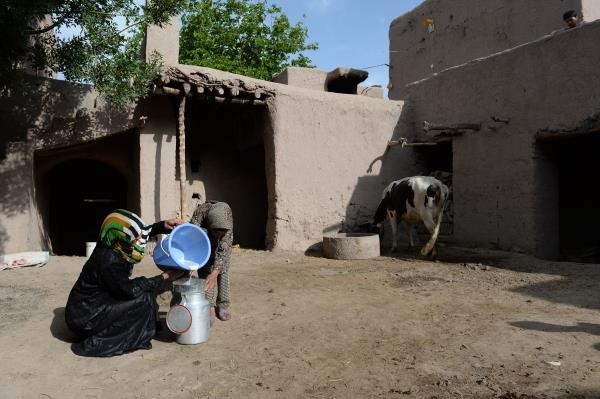
4 July 2017, Rome - FAO and Germany celebrated 15 years of successful collaboration today, hailing the more than $129 million (EUR115 million) in special funds channeled to food security, right-to-food initiatives and nutrition programmes around the world through the government's Federal Ministry of Food and Agriculture (BMEL) and FAO's Bilateral Trust Fund (BTF).
The special vehicle has engaged in more than 100 projects in more than 50 countries since it was established in 2002 on the back of a successful project to strengthen information systems for food and nutrition security in Afghanistan. Designed to catalyze broader actions, it has widened in thematic and geographic scope ever since, supporting countries to obtain concrete results within their development goals.
"We need to rely on strong and lasting partnerships to achieve sustainable development, and the Bilateral Trust Fund between FAO and Germany is a good example of this," said FAO Director-General José Graziano da Silva at a special event held on the sidelines of the annual FAO Conference.
The event, showcased a dairy project in Afghanistan along with a nutrition programme in Kenya that serves as a beacon for work the Bilateral Trust Fund supports across sub-Saharan Africa in hopes of encouraging larger-scale adoption and investment. Several BTF-initiated projects were later expanded with additional financial support from the International Fund for Agricultural Development, Italy and the World Bank.
Looking forward, the fund will now formally add migration and the nutritional relevance of soil conditions to its thematic focuses.
"Making a concrete contribution to realising the right to food and the access to land is and remains the fund's overriding aim," said Christian Schmidt, Federal Minister of Food and Agriculture. "The idea behind the fund was and still is the development of concepts by means of beacon projects that are then intended to be picked up on by financially stronger donors."
Germany's suite of actions
On top of its annual $30 million assessed contribution as a Member of FAO and its voluntary contributions to the work of FAO, Graziano da Silva noted that Germany is also a "major strategic partner" to FAO , as the government advocates for key themes such as food security and responsible investments in agriculture at major international fora such as the G8 and G20 summits.
One is the Right-to-Food as a legal construct. Germany, which includes right to food in its 1949 Basic Law, gave substantial support to the negotiations and implementation of the Voluntary Guidelines to support the progressive realization of the right to adequate food in the context of national food security, flanked by support for related FAO field projects in Sierra Leone, Uganda and the United Republic of Tanzania.
Germany has been a key partner for FAO in the promotion of secure tenure rights, providing extra support for the process of drafting the Voluntary Guidelines on the Responsible Governance of Tenure of Land, Fisheries and Forests, with the BTF then committing more than $3 million to a special project in Sierra Leone as well as others in Liberia and Mongolia.
The BTF is currently financing 20 ongoing FAO projects of around EUR30 million, selected to support the development of key knowledge-based institutional innovations that lead to ground-level impacts. BMEL also helped FAO develop a range of nutrition initiatives, including a new "Nutrition and Food Systems" e-learning course released late last year. That normative work was enhanced by a BTF-funded field study in Cambodia and Malawi that showed integrating nutrition education into agricultural production generated a healthy increase in dietary diversification.
FAO also receives contributions from other Ministries such as the Federal Ministry of Economic Cooperation and Development (BMZ), the Federal Ministry of the Environment, Nature Conservation, Building and Nuclear Safety (BMUB), the Federal Foreign Office (AA) and from institutions like the KfW Development Bank and the German Society for International Cooperation (Deutsche Gesellschaft für Internationale Zusammenarbeit [GIZ]). Germany is the sixth biggest donor to FAO as well as providing the highest contribution through the European Union.